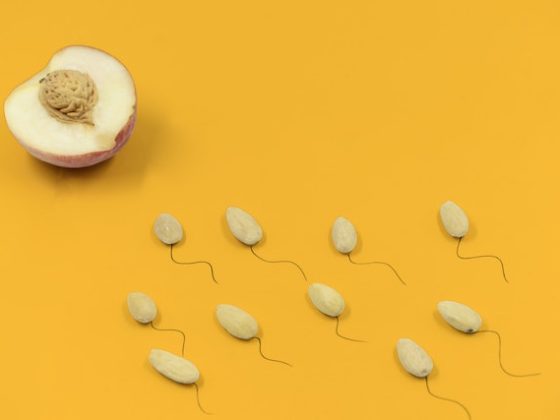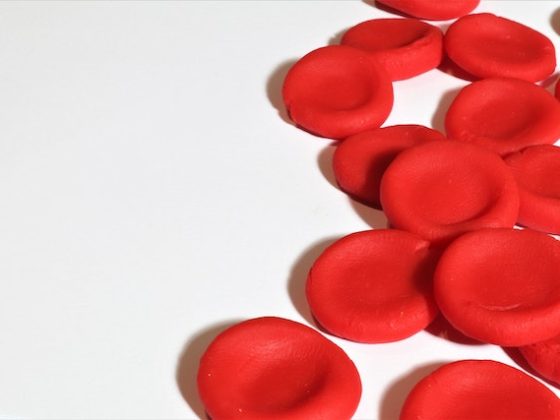Hey there! This post may contain affiliate links. As an Amazon Associate, I earn a teensy commission from qualifying purchases when you buy through these links (at no additional cost to you). For more info, please check the full disclaimer.
Pregnancy is a beautiful time filled with joy and anticipation. But for a first-time mother, it is not without anxiety and worry. At the end of the first trimester, your nausea and food aversions start to subside slowly, and signs of pregnancy heartburn emerge.
Heartburn is the most common complaint in the second trimester. It’s a fiery sensation that creeps up to your chest and throat and can be an unwelcome companion throughout your pregnancy.
Whether you are a veteran mom or expecting for the first time, understanding the early symptoms of pregnancy heartburn can help you navigate the uncomfortable feeling.
In this blog, you’ll find all about the signs of pregnancy heartburn, and the causes, risk factors, and methods to manage the condition.
What is Heartburn in Pregnancy?
Contrary to the name, heartburn is not associated with your heart. Clinically, it is called gastroesophageal reflux and is the burning sensation you feel in your chest as the acid in the stomach moves upwards toward the esophagus.
Research shows that heartburn occurs between 17-45% of pregnant women. The physical and hormonal changes in pregnancy make heartburn a common occurrence during the second and third trimesters.
Mild signs of pregnancy heartburn are not dangerous to the mother or the growing baby. Heartburn usually disappears on its own after the birth of the baby.
Read More: Risky Pregnancy Infections and Effect on Baby
Who is More Likely to Have Heartburn in Pregnancy?
If you are pregnant, you will likely develop heartburn, especially in the third trimester. However, certain factors increase the severity and frequency of symptoms attributed to heartburn in pregnant women.
A few factors that increase the probability of heartburn in women are:
- Pre-Pregnancy Weight
If you were overweight or obese before getting pregnant, you are more likely to develop severe signs of pregnancy heartburn.
- Pre-Pregnancy Heartburn
Those pregnant women who experienced frequent indigestion and heartburn before pregnancy are more likely to have severe signs of heartburn during pregnancy as well.
- Reproductive History
For first-time mothers, heartburn symptoms are mild compared to women who have given birth before.
In addition, not eating a healthy diet is strongly associated with symptoms of pregnancy heartburn. Experts highly advise eating foods good for pregnancy heartburn to prevent the worse symptoms.
Why Does Pregnancy Cause Heartburn?
When the food is swallowed, it reaches the stomach after passing through the esophagus. At the base of the esophagus is a valve that blocks the entrance to the stomach and is called as Lower Esophageal Sphincter (LES).
Under normal circumstances, the sphincter only opens to let the food pass through and prevents the food in the stomach from moving back into the esophagus.
In pregnant women, the high levels of progesterone slow down the contraction of muscles in the digestive tract. The partially digested food stays in the intestines for an extended period of time, leading to bloating and burping.
The progesterone also weakens the esophageal valves allowing the food and gastric acid to move upwards and enter the esophagus. The growing uterus also puts additional pressure on the stomach, exacerbating acid reflux and food regurgitation.
These physical and hormonal changes manifest as the signs of pregnancy heartburn, such as chest pain, burping, bitter taste in the mouth, etc. These symptoms are more prevalent after meals due to the production and secretion of acid in the presence of food.
Read More: Best Pregnancy Yeast Infection Treatments
What are the Signs of Pregnancy Heartburn?
Heartburn in pregnancy can mimic the signs of indigestion, making it hard to differentiate between them. Reflux, bringing up food, and chronic burping are some of the early symptoms of pregnancy heartburn.
Let’s discuss some of the unique signs of pregnancy heartburn in detail:
1. Chest Pain
Chest pain occurs in heartburn as the acid from the stomach moves backward into the esophagus. The growing uterus also applies pressure on the stomach causing the acidic contents of the stomach to enter the esophagus.
The acid from the stomach irritates the esophagus, which is perceived as a burning pain in the upper chest area, thus referring to it as heartburn.
Chest pain is one of the most notable signs of pregnancy heartburn. It is important to note that heartburn pain is felt in the upper chest and does not radiate to the surrounding areas, as occurs in cardiac issues.
Read More: Anxiety Chest Pain in Women
2. Bloating
Bloating is one of the common signs of pregnancy heartburn, adding to the discomfort of pregnant mothers. Bloating occurs due to hormonal changes during pregnancy, which induces high levels of progesterone hormone.
Progesterone decreases the movement of muscles, including the intestinal muscles causing the food to stay in the digestive system for a longer period. The build-up of food in the stomach and intestine makes the abdomen feels distended and creates a sense of fullness.

3. Burping
Burping or belching is commonly associated with indigestion. If you are pregnant, burping and bloating often go hand-in-hand for you.
Progesterone on the sphincter present on the upper end of the stomach causes burping. It weakens the sphincter muscles allowing the gases produced during digestion to escape the stomach as burps.
The combination of pregnancy hormones, reduced digestion, and pressure on the stomach by the growing uterus increases the frequency and intensity of burping.
4. Nausea
Although nausea is the hallmark indicator of pregnancy, it is further magnified by the onset of heartburn. Nausea occurs due to the high levels of human chorionic gonadotropin (hCG) hormones.
Nausea also occurs as a consequence of delayed digestion and reflux of stomach components. The presence of stomach acid in the esophagus exacerbates queasiness, increasing the urge to vomit.
5. Regurgitation
Regurgitation occurs when the contents of the stomach, including stomach acid and partially digested food, flow backward into the esophagus.
It occurs due to the effects of progesterone, which weakens the stomach valve, and the growing uterus also forces the stomach content to flow backward into the esophagus.
Depending on your food choices and lifestyle, regurgitation as a sign of pregnancy heartburn can be mild or severe and frequent. Consistent regurgitation leads to chest pain, discomfort, and temporary loss of appetite.
Read More: Best Pregnancy Heartburn Home Remedies
6. Bitter Taste
The bitter taste in the mouth is one of the common signs of pregnancy heartburn, adding an unpleasant sensation to the experience of the expecting mothers. This bitter taste is described as a metallic or sour taste that lingers in the mouth after eating or drinking.
The bitter taste occurs due to the regurgitation of partially digested food and acid into the esophagus. It is particularly prominent in the mornings or after eating, as acid reflux is more likely to occur at these times.
The bitter taste is likely to decrease your appetite leading to poor weight gain and affecting the growth of the baby.
7. Burning Throat
The burning sensation during heartburn is described as a hot, acidic, and sour feeling in the lower part of the throat.
The burning of the throat also occurs due to food regurgitation and backflow of stomach acid in the esophagus. It is usually felt after meals or when lying down as gravity causes the acid to move higher into the esophagus.
8. Wheezing
Wheezing is one of the lesser-known signs of pregnancy heartburn, as it occurs in more severe cases. Wheezing is defined as shortness of breath or asthma-like symptoms caused by irritation and inflammation of the airways.
When the stomach contents move upward into the esophagus, it can reach the back of the throat and even enter the respiratory tract. The acidic components irritate the airways causing inflammation which is manifested as constriction in the chest, hoarseness, chronic cough, and difficulty breathing.
What are the Tips to Prevent Heartburn In Pregnancy?
Signs of pregnancy heartburn are more common in women with indigestion and poor digestive health before they get pregnant. So, if you plan on having a baby, improving your dietary habits and nutritional choices can help you and your baby in the long run.
In order to alleviate the symptoms of heartburn in pregnancy, you can identify the food and lifestyle habits that trigger the reflux of acid and food. Experiment with different food and life patterns to manage the symptoms of heartburn.
Here are a few tips that can help you deal with acid reflux in pregnancy.

- Control the portions of your food and eat smaller meals. If you continue to feel hungry, increase the number of meals you consume per day.
- Eat slowly and chew properly so your stomach takes less time to break down the bigger food particles, speeding up the digestive process.
- Sit upright or at least at an angle of 45 degrees for an hour after eating to prevent the reflux of food.
- Eat light foods at night and avoid eating 3-4 hours before bed.
- Avoid coffee, tea, carbonated beverages, chocolate, and mint, as they trigger acid reflux. You can also monitor your symptoms and restrict foods that exacerbate heartburn.
- Consume milk or yogurt after eating or when the symptoms worsen, as they relieve the burning pain in the chest.
- Avoid fried and spicy foods, especially before bed, as they tend to remain in the stomach for a longer time, causing indigestion, acid reflux, and regurgitation.
- Sleep on the left side as they reduce the episodes of heartburn. You can also put pillows beneath you to help you stay elevated as you sleep.
- Consult your gynecologist so they can advise you on weight gain based on your pre-pregnancy weight. Higher than normal BMI in pregnancy can also exacerbate the symptoms of heartburn.
Is Pregnancy Heartburn Curable?
The signs of pregnancy heartburn usually dissipate without medical intervention after the birth of the baby. Some women experience severe symptoms of heartburn and require medication to prevent negative health consequences.
Some of the medications that can be used for the treatment of heartburn during pregnancy are:
- Antacids
Antacids are the safest and most widely used options for pregnant women with heartburn. They neutralize the acidity of the stomach, thus alleviating the symptoms associated with acid reflux.
- H2 Blockers
H2 blockers inhibit the production of gastric acid, reducing gastric pH and preventing the irritation of the esophagus.
- Proton Pump Inhibitors (PPI)
Proton pump inhibitors also reduce the production of acid in the stomach and are generally considered safe for pregnant women.
The Bottomline
Every mother-to-be face many expected and unexpected challenges throughout her pregnancy, and heartburn is definitely one of the less anticipated issues. Almost every woman faces mild to severe signs of pregnancy heartburn, including burning pain in the chest and throat, regurgitation, acid reflux, burping, and bloating.
These symptoms are caused by the elevated levels of progesterone and the growth of the baby in the uterus. Most women are able to manage these symptoms by changing their food patterns and life choices, but some may require medication.
If you are expecting, consult your gynecologist regarding your symptoms and prioritize your health so you can embrace the joys of this beautiful journey without unnecessary stress.
References:
- https://pubmed.ncbi.nlm.nih.gov/20274889/
- https://www.ncbi.nlm.nih.gov/pmc/articles/PMC9150547/
- https://pubmed.ncbi.nlm.nih.gov/31950535/
- https://www.ncbi.nlm.nih.gov/pmc/articles/PMC3975977/








